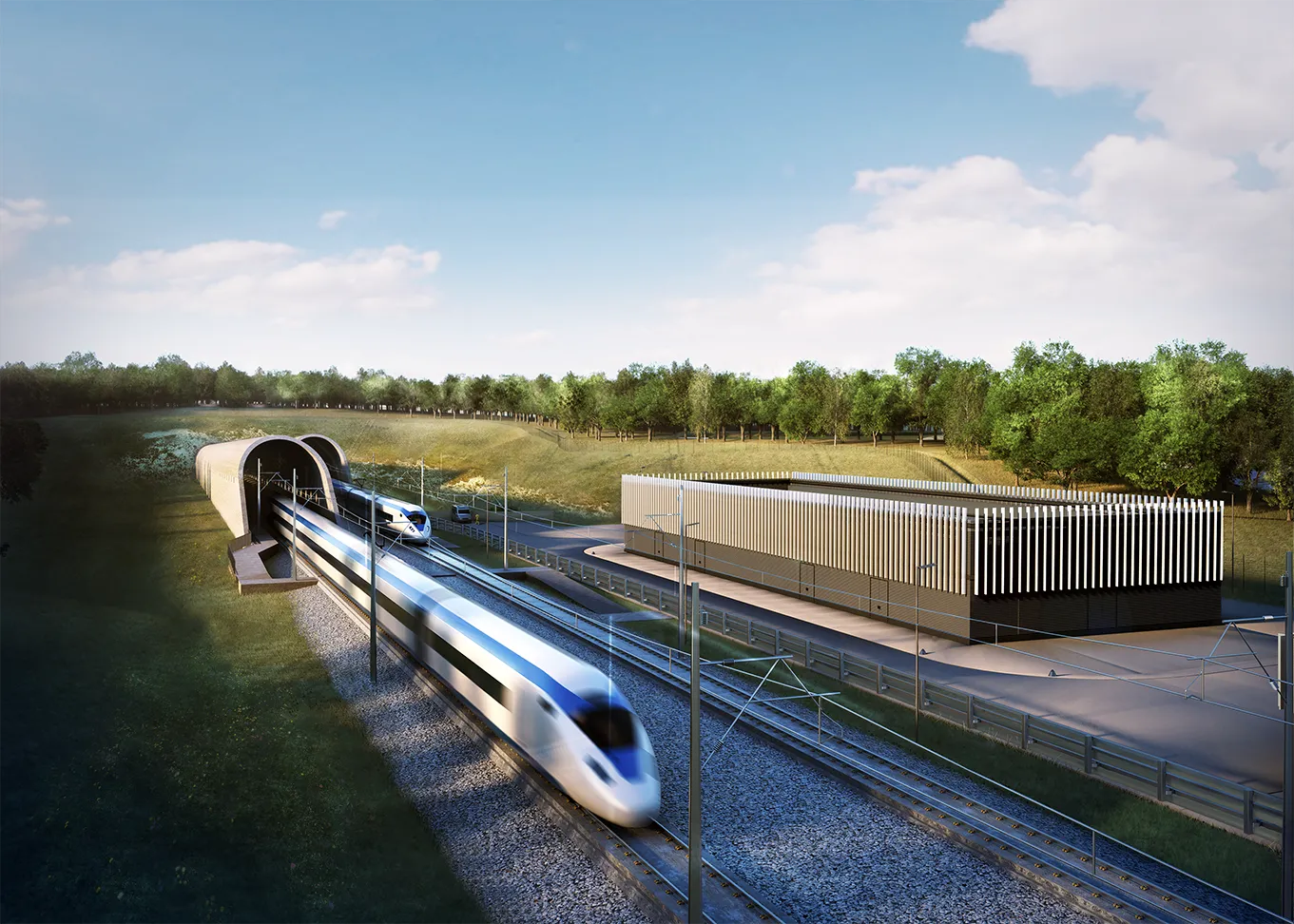According to a joint report published by Make UK and Barclays Corporate Banking, 85% of UK manufacturers support resurrecting the original HS2 route to the north of England. Meanwhile, 89% back new high-speed rail services connecting Liverpool, Manchester, Sheffield, Hull and Newcastle.
The report, titled “From Road to Rail: Optimising Goods Transport in UK Manufacturing,” highlights a growing concern among manufacturers that the current rail network lacks the capacity to meet rising freight demand.
The Government has set a target of increasing rail freight volumes by 75% by 2050, but manufacturers warn this goal is unachievable without urgent infrastructure upgrades and stronger support for intermodal transport systems.
Further reading: This mistake could cost your haulage business €5,000. And Germany’s not messing around
Freight capacity and modal shift under strain
While the majority of manufacturers continue to rely on road freight, 78% want to see greater investment in rail services for goods movement. A single freight train can remove up to 110 lorries from the road network and save an estimated 11,505 kg of CO₂, equivalent to the annual carbon absorption of 548 trees. Yet despite these environmental and economic advantages, cost, access, and flexibility remain major barriers.
Nearly half (45%) of manufacturers cite cost as the primary obstacle to switching to rail freight, with rail access charges having risen by 26% over the past decade. In contrast, road freight charges and levies have fallen by 41% in real terms. Other key challenges include lack of local terminal access (39%) and production volumes considered too low to justify the use of full rail containers (42%).
The report suggests that halving rail access charges could remove 38 million HGV miles and reduce emissions by 130 kilotonnes of CO₂, but achieving this would require policy reform and long-term commitment to infrastructure investment.
Further reading: Hauliers warned: Netherlands plans roadside AdBlue checks
Call for “logistics hotels” and targeted hubs
To address what it calls the “last mile challenge,” Make UK proposes the development of a national “freight spine” supported by multimodal logistics hubs—dubbed “logistics hotels”—at strategic points, such as Crewe and Felixstowe. These hubs would integrate rail, road, and port infrastructure to improve supply chain efficiency, reduce emissions, and support just-in-time operations.
Crewe, originally planned as a key node in HS2 Phase 2, is identified as an ideal pilot location. It sits at the junction of major industrial centres in the North West and had previously been forecast to deliver £1.1 billion in Gross Value Added (GVA) to the region.
A logistics hub modelled on successful examples such as La Chapelle International in Paris, where a 400-metre rail terminal has replaced 44,000 truck journeys annually, is seen as a replicable approach to enhancing rail’s role in freight movement across the UK.
In case you missed it: Drivers offered container sleep pods at logistics centre
Digital access and structural reform
Beyond physical infrastructure, the report argues that better digital access to rail freight is essential. It calls for a simplified ticketing system for container space, modelled on air freight and passenger rail services. Currently, businesses must engage a freight operating company and secure access via Network Rail, a process that can be opaque and costly, especially for smaller firms.
“Manufacturers need flexible, transparent, and user-friendly freight options,” said Fhaheen Khan, Senior Economist at Make UK. “By addressing barriers like high costs and poor terminal access, and by integrating digital booking systems, the UK can reduce lorry journeys, improve road safety, and meet its climate targets.”
Long-term outlook and legislative change
The report also points to wider structural challenges in British infrastructure delivery. The UK spends more on transport infrastructure than the OECD average, yet construction costs are disproportionately high; £34.3 million per km of rail, compared with £12.6 million in France. Meanwhile, the sector is hampered by planning delays, skill shortages, and fragmented governance.
Make UK urges the Government to fully implement the Planning and Infrastructure Bill 2025, which aims to streamline planning for nationally significant infrastructure projects. It also recommends that rail freight receive equal prioritisation with passenger services in the future structure of Great British Railways, the body tasked with unifying the UK’s fragmented rail system.
As the report concludes, without coordinated national planning and strategic investment in freight infrastructure, the UK risks missing its decarbonisation goals and weakening the competitiveness of its manufacturing sector.
In case you missed it: Need EV chargers at your depot? Don’t miss this £1 million EV charging grant











